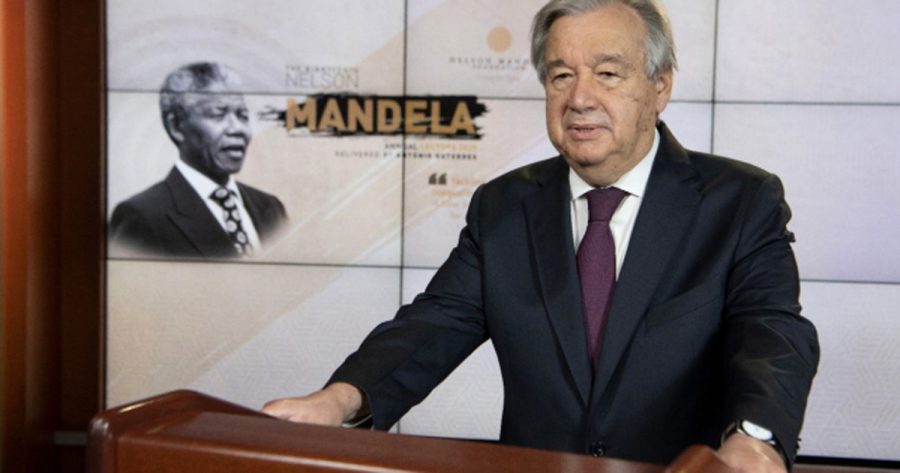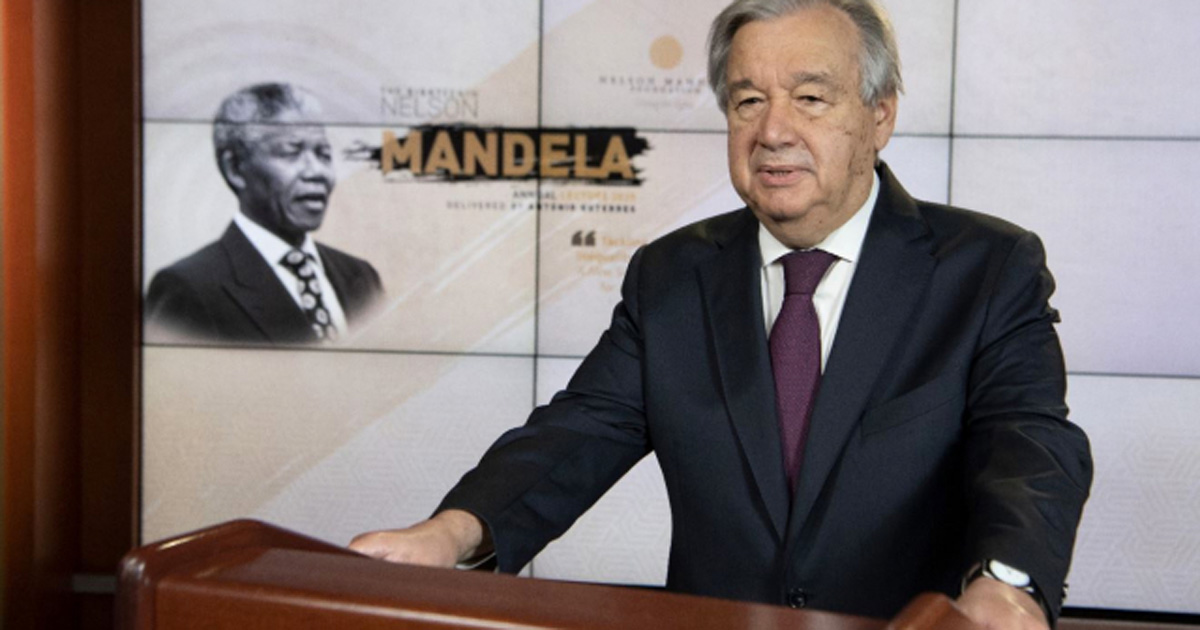
UN SG: Pandemic Exposes World Injustice – The 26 Richest Hold Wealth Equal to HALF the Global Population
The COVID-19 pandemic has shone the spotlight on injustice in the world while also exposing risks that have been ignored for decades, says United Nations Secretary-General, António Guterres. He said the 26 richest people hold the same wealth as half the global population; and 100 million more people could be pushed into extreme poverty and […]

The COVID-19 pandemic has shone the spotlight on injustice in the world while also exposing risks that have been ignored for decades, says United Nations Secretary-General, António Guterres. He said the 26 richest people hold the same wealth as half the global population; and 100 million more people could be pushed into extreme poverty and famines of “historic proportions”.
Delivering the 18th Nelson Mandela Annual Lecture on what would have been former President Nelson Mandela’s 102nd birthday, Guterres said the world is facing the worst global recession since the Second World War (which ended in 1945).
“The pandemic demonstrated the fragility of our world. It has laid bare risks we have ignored for decades: inadequate health systems; gaps in social protection; structural inequalities; environmental degradation; [and] the climate crisis,” said Guterres.
As the world commemorated Nelson Mandela International Day, Guterres noted that regions that were making progress on eradicating poverty and narrowing inequality, have been set back years, in a matter of months.
He said COVID-19 poses the greatest risk to the most vulnerable, including those living in poverty, older people, and people with disabilities and pre-existing conditions.
Guterres also expressed concern at the number of health workers contracting the virus.
“Health workers are on the front lines, with more than 4 000 infected in South Africa alone. In some countries, health inequalities are amplified as not just private hospitals, but businesses and even individuals are hoarding precious equipment that is urgently needed for everyone,” he said. (Today in Johannesburg, at least two people were killed and seven arrested after a botched robbery of COVID equipment and cellphones at the cargo section of O.R. Tambo International Airport today.)
The virus, he said has also affected those working in the informal sector.
“The economic fallout of the pandemic is affecting those who work in the informal economy; small and medium-size businesses; and people with caring responsibilities, who are mainly women,” Guterres said.
He said as a result of COVID-19, the world is facing the deepest global recession since World War II, and the broadest collapse in incomes since 1870.
He said 100 million more people could be pushed into extreme poverty and “we could see famines of historic proportions.”
Fragile societies
COVID-19 has been likened to an X-ray, revealing fractures in the fragile skeleton of societies today.
“It is exposing fallacies and falsehoods everywhere, [including] the lie that free markets can deliver healthcare for all; the fiction that unpaid care work is not work; the delusion that we live in a post-racist world; [and] the myth that we are all in the same boat,” he said.
While all countries were floating on the same sea the Secretary-General said, it is clear that some are in superyachts while others are clinging to the floating debris.
Inequality
The Secretary-General highlighted that more than 70% of the world’s people are living with rising income and wealth inequality, while the 26 richest people in the world hold as much wealth as half the global population.
“People’s chances in life depend on their gender, family and ethnic background, race, whether or not they have a disability, and other factors. Multiple inequalities intersect and reinforce each other across the generations.
“The lives and expectations of millions of people are largely determined by their circumstances at birth. In this way, inequality works against human development – for everyone. We all suffer its consequences.”
High levels of inequality are associated with economic instability, corruption, financial crises, increased crime and poor physical and mental health, he added.
“Discrimination, abuse and lack of access to justice define inequality for many, particularly indigenous people, migrants, refugees and minorities of all kinds. Such inequalities are a direct assault on human rights,” he said.
The virtual lecture was held under the theme “Tackling The Inequality Pandemic: A new social contract for a new era.”
The lecture was also dedicated to the memory of Mandela’s daughter Zindzi, who passed away earlier this week.
The lecture was streamed live from the Nelson Mandela Foundation in Johannesburg and the United Nations headquarters in New York. – SAnews.gov.za
